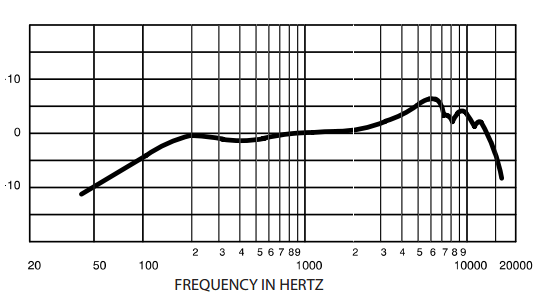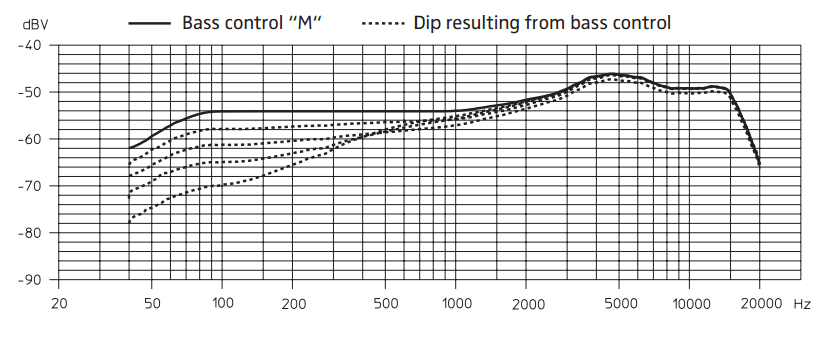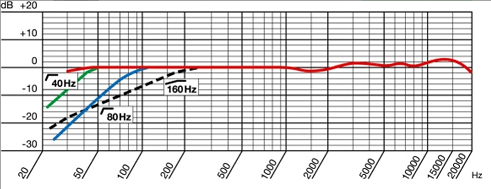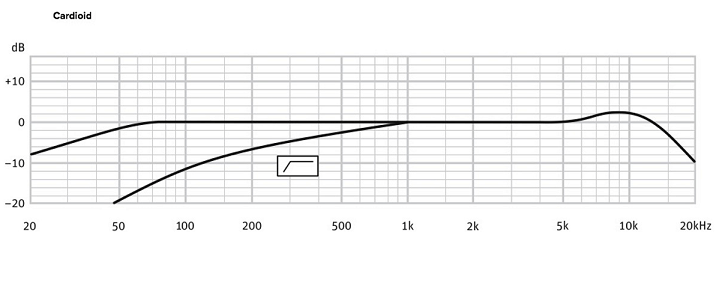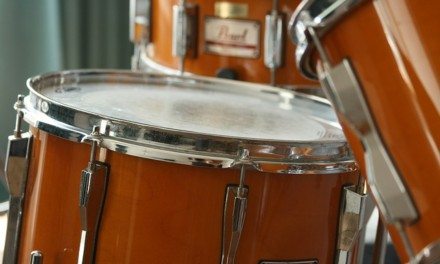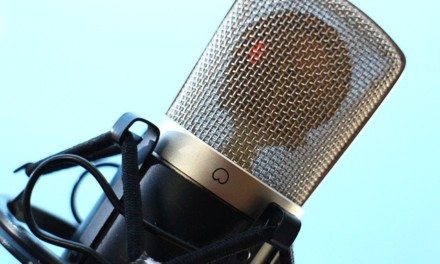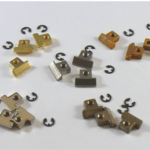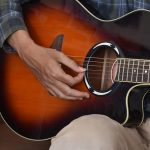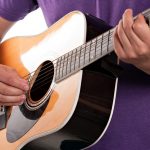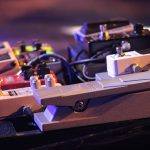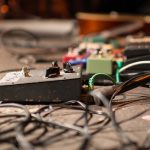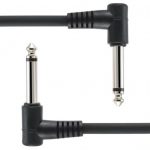Any links on this page that lead to products on Amazon are affiliate links and I earn a commission if you make a purchase. Thanks in advance for your support!
The Top 5 Best Microphones For Recording Electric Guitar
Choosing the top 5 best microphones for recording electric guitar is actually pretty easy!
As it turns out, there are just a handful of mics that are proven over and over to deliver incredible guitar tracks.
Best Microphones For Recording Electric Guitar
Beginner’s Guide To Buying Microphones
If you’re new to buying microphones, please check out my Beginner’s Guide to Buying Microphones For Your Home Recording Studio. You’ll learn the different types of mics discussed in this article, how mics work, mic polar patterns, when to use them, and much more.
Check out my complete series of microphone articles:
- Beginner’s Guide to Buying Microphones For Your Home Recording Studio
- The Best Condenser Microphones For Home Studio Recording (Under $1,000)
- The 5 Best Dynamic Microphones For Home Recording Studios (Under $500)
- The 7 Best Ribbon Microphones For Home Studio Recording (Under $1,000)
- The 5 Best Cheap Microphones For Budget Home Studios
- The 7 Best Computer/ USB Microphones For Podcasting And Home Recording
- The 9 Best Microphones For Recording Vocals (Under $1,000)
- The 5 Best Microphones For Recording Acoustic Guitar
- The Top 5 Best Microphones For Recording Electric Guitar
- The 5 Best Microphones For Recording Drums In A Home Studio On A Budget
- The 5 Best Microphones For Recording Electric Bass
The Top 5 Best Microphones For Recording Electric Guitar
Shure SM57
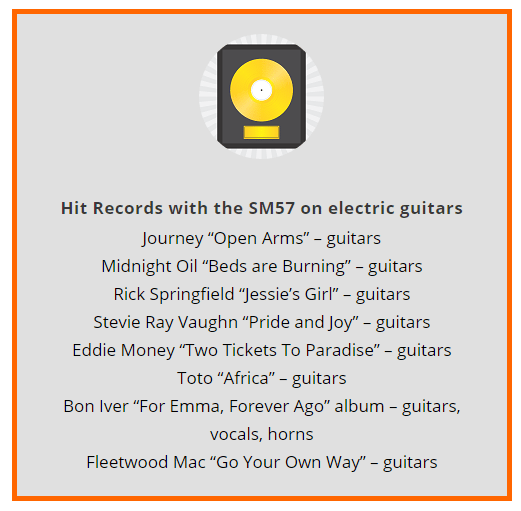 You really can’t go wrong with owning a Shure SM57.
You really can’t go wrong with owning a Shure SM57.
It’s a legendary mic that’s been a part of the recording of guitars, bass, drums, brass, and vocals on countless hit songs, and it’s done its job during millions of incredible concert performances.
And the best part? It retails for less than $100!
As a dynamic mic, the SM57 is able to handle very loud audio levels without distorting. And its flat grill design lets you place it very close to your sound source. This makes it especially popular for miking guitar amps.
It’s also built like a tank, and virtually indestructible. Yours should last for many many years even if you don’t treat it like a favored member of the family!
Highly recommended!
Hear the SM57 in action at the Shure Mic Listening Lab.
Electric Guitar Mic Comparison
This mic shootout compares the SM57 to other popular guitar amp mics. The SM57 starts at 3:22.
Shure SM57
Check price:
Amazon | Guitar Center
Shure SM57 Specs:
- Dynamic mic
- Cardioid pickup pattern
- 40 Hz – 15 kHz frequency response
- Includes stand adapter and zippered carrying case
Frequency response chart:
Click image for larger popup
Beyerdynamic M160
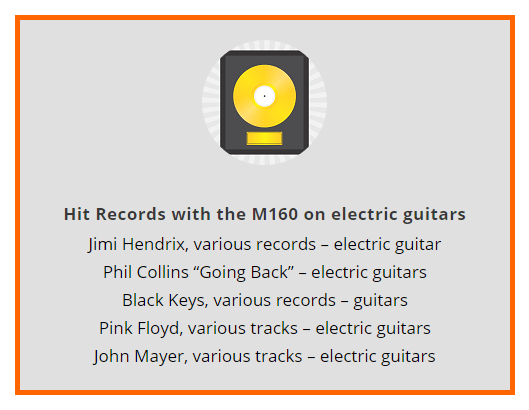 Beyerdynamic, also known as Beyer, is a well-known German manufacturer of microphones and headphones that are best known for their first-class ribbon microphones.
Beyerdynamic, also known as Beyer, is a well-known German manufacturer of microphones and headphones that are best known for their first-class ribbon microphones.
The M160 is a legendary ribbon mic used in countless records, radio broadcasts, and audio productions since its introduction in 1952.
It utilizes a double ribbon design that produces a warm and natural transparent sound with extended frequency response.
What makes this mic so special? The M160 utilizes a double ribbon design that produces a warm and natural transparent sound with extended frequency response.
It is also the only ribbon I know of that is a hyper cardioid mic as opposed to the normal figure-8 polar pattern. This enables it to be used in different recording situations than a standard ribbon mic.
It is a very versatile mic. Beyer on its website recommends its use for violins, violas, cellos, saxes and piano.
But producers and engineers have made it a first-call mic on two different instruments that Beyer didn’t recognize: drum kits and electric guitars.
The classic John Bonham/ Led Zeppelin drum sound made famous on hits like “When The Levee Breaks” and “Stairway To Heaven” were recorded with just two M160s on overheads!
Led Zeppelin – When The Levee Breaks
But as you can see from the Hit Records box, many producers and engineers love its sound on electric guitars too. Grammy award-winning producer Eddie Kramer used the M160 as the mic of choice on Hendrix’s vocals and guitar tracks.
With a heritage like this, you can’t go wrong with this classic mic!
Electric Guitar Mic Comparison
This shootout compares the M160 to other popular guitar amp mics. The M160 starts at 1:37.
Beyerdynamic M160
Check price:
Amazon | Guitar Center
Beyerdynamic M160 Specs:
- Hypercardioid pattern pickup pattern
- 40 Hz – 18 kHz frequency response (click for freq response curve chart)
- Includes swivel adapter, foam windscreen and carrying case
Frequency response chart:
Click image for larger popup
Sennheiser MD 421-II
 The MD 421-II is another classic mic that is known for its versatility. It simply sounds good on everything – guitars, drums, group vocals, and more.
The MD 421-II is another classic mic that is known for its versatility. It simply sounds good on everything – guitars, drums, group vocals, and more.
However, one of its main strengths is its ability to capture low frequencies well. This has made it a go-to mic for recording toms and for bass or baritone voices.
For guitars, its strength is recording hard rock and metal guitar that benefits from a strong low end. As you can see from the Hit Records Box, some great sounding rock guitar tracks were recorded with the MD 421.
It can handle the extreme sound pressure levels that loud guitar amps generate, and it has excellent feedback rejection that helps with guitar amp miking.
Its glass composite housing and hardened stainless steel basket construction will provide years of use in the most demanding situations.
Sennheiser MD 421-II
Check price:
Amazon | Guitar Center
Sennheiser MD 421-II Specs:
- Hypercardioid pattern pickup pattern
- 40 Hz – 18 kHz frequency
- Includes swivel adapter, foam windscreen and carrying case
Frequency response chart:
Click image for larger popup
AKG C414 XLS & AKG C414 XLII
 The award-winning AKG C414 has been a top professional condenser mic since it was first introduced in 1971.
The award-winning AKG C414 has been a top professional condenser mic since it was first introduced in 1971.
It’s been part of countless hit records (see side box) as it sounds fabulous on just about everything – vocals, acoustic guitar, sax, drums – you name it.
It’s one of my favorite mics, along with my Neumann U87. I’ve personally used my C414-XLII to record electric guitar, acoustic guitar, vocals, percussion, ukulele, and more for TV commercials, records and movie scores with great success.
The C414 XLS and XLII models are updates to the original C414 that retains its classic sound but takes advantage of the latest technology.
The main difference between these two models? The XLII has a midrange presence boost which provides a brighter airier sound. The XLS also has a silver grill while the XLII has a gold grill.
Both C414 models come with 9 different polar patterns – cardioid, hyper cardioid, figure-8, omni and wide cardioid position – plus 4 intermediate settings. This versatility allows you to choose the best settings to fit your recording session.
Both models also include three switchable bass filter settings and three pre-attenuation settings.
If you’re looking for a mic that’s proven to deliver the goods no matter what you’re recording, this is one to consider!
Electric Guitar Mic Comparison
This shootout compares the C414 to other popular guitar amp mics. The C414 starts at 2:48.
AKG C414 XLS
Check price:
Amazon | Guitar Center
AKG C414 XLS Specs:
- 9 polar pickup patterns: cardioid, hyper cardioid, figure-8, omni and wide cardioid position, plus 4 intermediate settings.
- 20 Hz – 20 kHz frequency response
- 152 dB max SPL
- Includes stand mount, shock mount, pop screen, windscreen, and a carrying case
Frequency response chart:
Click image for larger popup
AKG C414 XLII
Check price:
Amazon | Guitar Center
AKG C414 XLII Specs:
- 9 polar pickup patterns: cardioid, hyper cardioid, figure-8, omni, and wide cardioid position, plus 4 intermediate settings.
- 20 Hz – 20 kHz frequency response
- 152 dB max SPL
- Includes stand mount, shock mount, pop screen, windscreen, and a carrying case
Frequency response chart:
Click image for larger popup
Neumann U87 AI
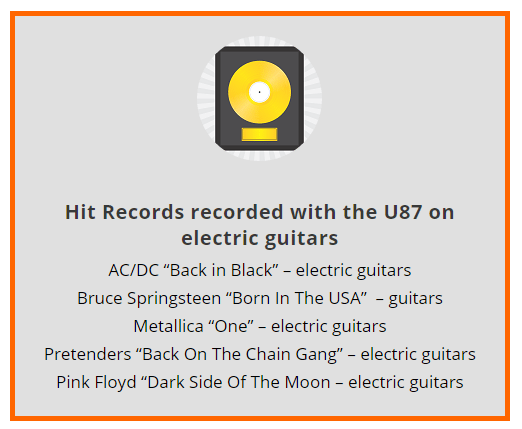 The Neumann U87 is a true classic condenser mic and one of the best known and widely used mics in the world. Just about every pro commercial studio will have at least one of these.
The Neumann U87 is a true classic condenser mic and one of the best known and widely used mics in the world. Just about every pro commercial studio will have at least one of these.
In a nutshell, it delivers the classic smooth Neumann sound on just about everything! It has an exceptionally flat frequency response, and users can choose between cardioid, omni, and figure-8 polar patterns.
It is considered by many as the best studio microphone for vocals, bar none.
My U87 is my go-to mic for vocals. But I’ve gotten fantastic recordings with it also on acoustic and electric guitars, strings, percussion and more.
As you can see from the Hit Records Box, quite a few classic guitar tracks were recorded with the U87.
If you can afford it, you won’t regret this investment in this acclaimed premium mic!
It comes in matte black or nickel finish.
Neumann U87 AI
Check price:
Amazon | Guitar Center
Neumann U87 AI Specs:
- cardioid, omni, figure-8 pickup pattern
- 20 Hz – 20 kHz frequency response
- 117 dB max SPL
- Switchable low-frequency roll-off
- Switchable 10dB pre-attenuation
- Includes a shock mount, pop filter, and a cherry wood case
Frequency response chart:
Click image for larger popup
Conclusion
Whether you are a beginner or an experienced professional, these five mics are all great choices for recording electric guitar.
You can’t go wrong with an SM57 for under $100.00, and the higher-priced mics will bring even more sonic choices to your recordings.
One final thing: Don’t forget a high-quality mic preamp to get the best sound from your new mic!
Check out my complete series of microphone articles:
- Beginner’s Guide to Buying Microphones For Your Home Recording Studio
- The Best Condenser Microphones For Home Studio Recording (Under $1,000)
- The 5 Best Dynamic Microphones For Home Recording Studios (Under $500)
- The 7 Best Ribbon Microphones For Home Studio Recording (Under $1,000)
- The 5 Best Cheap Microphones For Budget Home Studios
- The 7 Best Computer/ USB Microphones For Podcasting And Home Recording
- The 9 Best Microphones For Recording Vocals (Under $1,000)
- The 5 Best Microphones For Recording Acoustic Guitar
- The Top 5 Best Microphones For Recording Electric Guitar
- The 5 Best Microphones For Recording Drums In A Home Studio On A Budget
- The 5 Best Microphones For Recording Electric Bass


